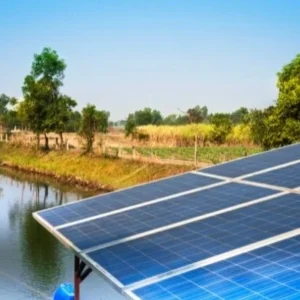Nearly 600 million Africans still lack access to electricity, while close to one billion rely on traditional biofuels for cooking. Despite contributing less than 5% of global greenhouse gas emissions over the last 170 years, Africa is one of the regions most vulnerable to climate change. Accelerating the transition to renewable energy is therefore a top priority for the upcoming Second Africa Climate Summit, set to take place in Ethiopia this September. The summit will bring African leaders together to push for fair global responses to the crisis, including adequate financing, access to technology, and stronger commitments from high-emitting countries.
African countries have pledged to cut emissions, but the transition away from fossil fuels presents major challenges. Renewable energy currently accounts for just over 24% of the continent’s electricity supply, with solar energy making up a mere 3%. The shift will require between US$1.6 and US$1.9 trillion by 2030, yet much of the available climate finance comes in the form of loans rather than grants, driving up debt burdens. With over 751 million Africans affected by governments prioritizing debt repayments over climate resilience investments, many argue that current global energy initiatives do not sufficiently address Africa’s needs.
The continent’s first climate summit in 2023 produced the Nairobi Declaration, which set ambitious targets including a 43% reduction in emissions by 2030, a call for delivery of the $100 billion annual climate finance pledge, and commitments to expand renewable energy and build green industries. Since then, progress has been uneven, with limited follow-up and reporting. However, initiatives such as the Africa Green Industrialisation Initiative and the Continental Circular Economy Action Plan (2024–2034) have been launched, aiming to create jobs, empower youth and women, and promote sustainable growth.
The 2025 summit will focus on six priority areas: rethinking climate finance, accelerating renewable energy, scaling up nature-based and community-led solutions, strengthening governance and partnerships, harnessing Africa’s vast critical mineral reserves for a just energy transition, and improving regional implementation mechanisms. These topics reflect Africa’s urgent need for both systemic reform and practical solutions to bridge the gap between policy ambitions and real-world outcomes.
Indigenous knowledge systems and decentralized renewable energy solutions are expected to play an important role in discussions. By combining traditional practices with modern technologies, Africa can strengthen resilience, expand access to reliable power, and support local economies. Civil society groups, regional institutions, and grassroots organizations are also working to ensure that community voices are heard in shaping climate strategies, making the summit more inclusive.
The ultimate success of the 2025 Africa Climate Summit will depend on whether African leaders can unite behind a shared vision for resilience, sustainable growth, and fairer treatment in global climate negotiations. If achieved, Africa could not only protect its people and ecosystems but also establish itself as a global leader in climate action.







